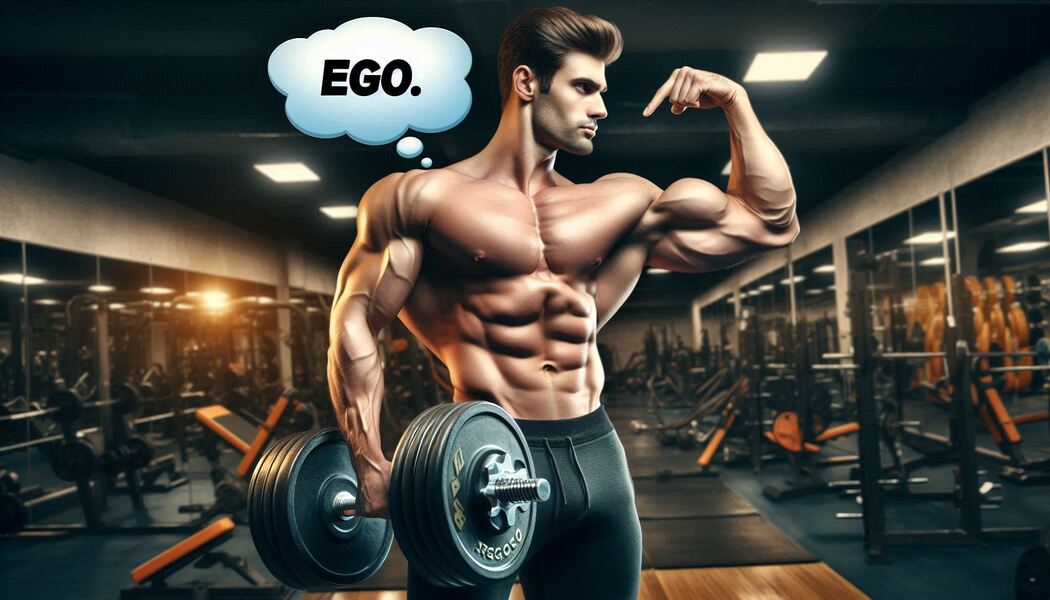What is reverse body dysmorphia?
Reverse body dysmorphia is when a person becomes obsessed with the false belief that they’re weaker and smaller than they really are. Even though people with this condition have average or above-average muscularity, they think they’re insufficiently muscular.1Blomeley, D., Phillipou, A., & Castle, D. J. (2018). Sizing it up: a systematic review of the nosology of muscle dysmorphia. Clinical Research in Psychology, 1(1), 1-10.
Reverse body dysmorphia is also referred to by other names, such as:
- Muscle dysmorphia
- Bigorexia Nervosa
- Reverse anorexia
- Adonis Complex
As you might have guessed, this condition is common among men, particularly those involved in bodybuilding, weightlifting, and other athletic endeavors.2Vasiliu, O. (2023). At the Crossroads between eating disorders and body dysmorphic disorders—the case of bigorexia nervosa. Brain Sciences, 13(9), 1234.
Contributing factors
Being obsessed and over-identifying with anything often indicates that a person derives a major portion of their self-worth from that thing. People obsessed with a lack of muscularity derive a major portion of their self-worth from being muscular. Of course, there’s nothing wrong with wanting to be muscular. But when it takes over your life, you know there are deeper issues.
People with reverse body dysmorphia tend to have a poor self-concept and low self-esteem.3Mitchell, L., Murray, S. B., Cobley, S., Hackett, D., Gifford, J., Capling, L., & O’Connor, H. (2017). Muscle dysmorphia symptomatology and associated psychological features in bodybuilders and non-bodybuilder resistance trainers: A systematic review and meta-analysis. Sports Medicine, 47, 233-259. This is precisely why they will grab onto anything that will increase their self-esteem. In their case: muscularity. They also tend to suffer from:
- Perfectionism
- Anxiety
- Depression
- Neuroticism
Media pressure also plays a key role.4Grieve, F. G. (2007). A conceptual model of factors contributing to the development of muscle dysmorphia. Eating disorders, 15(1), 63-80. In the age of social media, you’re always going to find more and more men with better, more muscular physiques. So, the social pressure to grow bigger and bigger is constantly there.
Negative effects
Men obsessed with growing bigger and bigger are likely to spend too much time in the gym, neglecting other life areas. They’re also likely to look for shortcuts to gain muscle, like abusing supplements and steroids. They’re likely to injure themselves by ego-lifting, i.e., lifting weights too heavy for them to impress themselves and others.
Psychologically, they’re never satisfied, no matter how muscular they get. Obsessive thoughts about their perceived insufficient muscularity keep haunting them. One can tell that their entire identity is their muscularity. Their social media profiles are filled with pictures of them in the gym and hardly anything else.
About the test
This test consists of 12 items on a Yes/No scale. It’s not meant to be a diagnosis, but it gives you a quantitative idea of how severe your obsession with muscularity is likely to be. If you get a high score, you should seek professional help. The test is completely anonymous. We don’t store or share your results.







